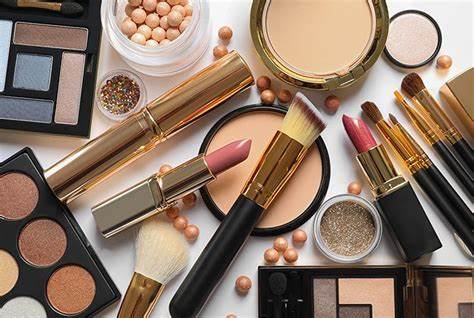
Buy personal makeup products, brushes to prevent infections
A dermatologist at the Trust Hospital and Clinics in Accra, Dr Mary Oduro-Baah, has advised people who patronise the services of commercial makeup artists to use their personal products and tools such as brushes and sponges.
She explained that while the purpose of wearing makeup could be to feel more confident or cover up certain skin defects, sharing makeup tools with people could lead to serious skin problems like irritations, acne breakouts, infections and allergic reactions.
She said most commercial makeup artists used the same products and tools on different people without cleaning them and this is how some infections are spread.
“A common practice is during a wedding when the bride and bridesmaids usually take turns to use the services of one or two makeup artists. In such instances, if one of them (the bridal party) has some kind of infection on the face, it easily spreads to others.
“Also, when you visit some makeup shops, you see the tools displayed openly, and over time, they collect dust and other particles from the environment which you won’t see with your eyes. These particles could be transferred to the makeup products and then to the face. Having your personal products helps to reduce your risk of getting some common skin infections,” she told The Mirror in an interview in Accra on Wednesday.
She explained that ideally, makeup tools must be washed after each use or stored in a zip-lock bag to prevent dust from settling on them.
Skincare routine
Dr Oduro-Baah, who is also an aesthetician and CEO of MySkin and Laser Clinic, explained that applying makeup regularly increased the chances of getting certain skin conditions and recommended a proper skincare routine.
“Some of the products are also comedogenic (tends to clog pores, especially by the formation of blackheads), which leads to clogging of the pores and worsening of acne or causing new breakouts.
“Most people do makeup to cover up defects on their skin, such as acne, acne scars, normal scars from trauma, hyperpigmented patches, melasma, sunburn, ochronosis and even ageing skin. As you age, you lose facial fat and develop fine lines and wrinkles. If not applied properly, the foundation can settle in all the fine lines and cause one to look older.
“After removing your makeup with micellar water, wash your face properly with a gel moussant facial cleaner, pat the face dry and base the skin with a good moisturiser,” she advised.
For people such as on-air personalities or others whose jobs require wearing makeup daily, she advised that they take their skincare routine seriously and invest in good skin care products.
With an influx of cheap and sub-standard makeup and skin care products on the market, she said the best way to check if a product was suitable for one’s face was to first try a pea size at the back of the palm for two days before applying on the face.
She said that way, any reactions will be noticed on the back of the palm before the product is applied to the face.
Dr Oduro-Baah said it was common for people to recommend different products and remedies once they notice a rash or pimples on the face.
Some of these remedies, she explained, only worsened the situation and caused more discomfort.
She advised that people with these conditions seek help from professionals.
Simple guide to washing makeup brushes

• Rinse the tips of your brushes under lukewarm water to remove residual makeup.
• Only rinse the tip, as submerging the whole brush head will eventually dissolve the glue that connects the brush head to the handle.
• Fill a bowl with lukewarm water and a tablespoon of either gentle shampoo or clarifying shampoo. (Using plain soap and water can dry out the bristles)
• Swirl each brush tip in the bowl.
• Rinse the brush tips under running water.
• Continue shampooing and rinsing each brush until the water runs clear from the brush.
• Gently squeeze out excess moisture with a clean, dry paper towel.
• Lay your brushes on a towel to dry, with the tips hanging off the counters
